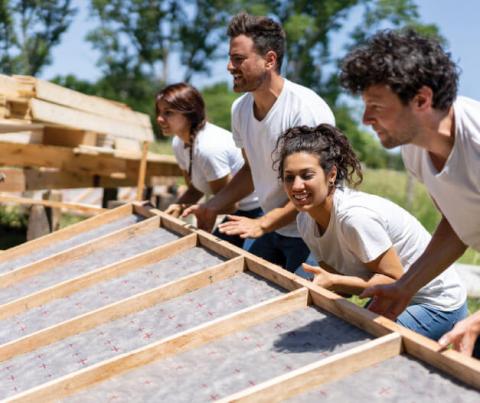
Community Mobilization + Engagement
Rationale
Community engagement is a critical part of the value add of a United Way in a community. The ability to convene community residents from diverse backgrounds and perspectives is part of what differentiates us from other organizations. Over the past decade, United Way has deepened our overall capacity to authentically engage community residents to identify, discuss, and work together on issues of concern. This is best reflected in the United Way Mobilization Groups, a partnership initiated in 2010 between United Way Worldwide and the Harwood Foundation to engage cohorts of United Ways committed to developing stronger relationships with community residents and more deeply engaging them on the issues of education, economic mobility, and health. UWW launched four mobilization groups that included close to 50 United Ways over several years focused on Education, Income/Economic Mobility, Early Grade Reading, and Health. Participating United Ways received coaching, customized technical assistance, and peer learning opportunities to increase their organization’s ability to reach community residents, deepen their understanding of community needs and issues, and to integrate this knowledge into impact work. Visit United Way Online to access general tools and resources related to community engagement.
This legacy provides a solid foundation on which United Ways can build. In some instances, participating United Ways built on initial community conversations, then subsequently focused more intentionally on conversations about equity and/or race equity (see the United Way of Racine example below). Yet, the Mobilization effort, while issue-focused, did not explicitly focus on equity as a process and an intended outcome. Integrating an equity lens into community engagement and mobilization efforts can create opportunities for empowerment, in that residents themselves can shape solutions to the issues and challenges that they have identified.
Informal networks are mechanisms for sharing information and connecting members to opportunities and resources that may not be widely known or publicly available. The strength or weakness of a network has implications as to which opportunities and resources people can access, and contributes to social inequity because those with strong networks benefit from connections while those with weak ones do not. United Ways that are knowledgeable of these networks can help people access social capital that closes gaps by creating spaces for people to connect to informal networks.
united Way's Community Engagement Efforts That Explicitly Focus On Equity Can:
- Create opportunities for community residents to reflect on how their life experiences have been, and are currently, shaped by their identities and the value placed on those identities by the larger society, structures, institutions, and individuals
- Create more effective impact solutions in education, economic mobility, and health; more likely to uncover underlying issues, and create solutions that reflect community assets and challenges, because the solutions are grounded in the lived experience of community residents
- Increase the likelihood for greater community buy-in and ownership of proposed solutions
- Level the playing field for engagement, by recognizing and valuing the diverse perspectives that community residents bring based on their unique identity, role, and experiences
- Empower residents by amplifying new voices, especially those that are often under-represented in decision-making, as well as identifying existing leaders, and potential allies to be part of crafting solutions
- Create opportunities for increased cross-cultural understanding by connecting people from different backgrounds and perspectives
- Create space for developing shared purpose, community goals, and establishing common ground across key constituencies (residents, the nonprofit sector, business community, local government)
- Improve citizens’ knowledge, skills, and efficacy in problem-solving
- Create opportunities for United Ways to connect community members to informal networks

